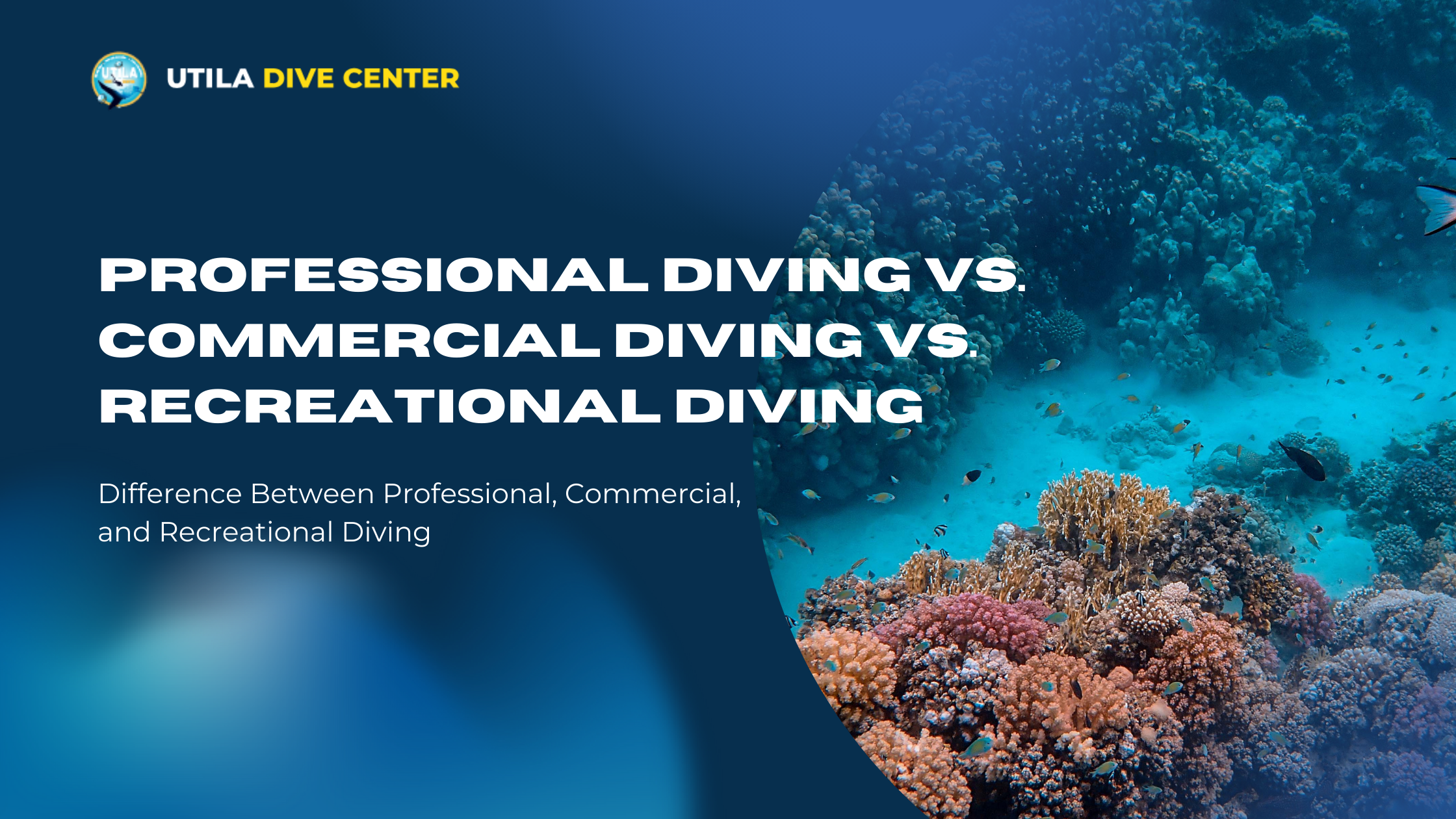
Professional Diving Vs. Commercial Diving Vs. Recreational Diving
Difference Between Professional, Commercial, and Recreational Diving
By: Manny Lagos | Date: 2024-12-06T11:55:03.016Z
Diving isn’t a one-size-fits-all sport or career, and the route you take really depends on what you want to achieve. Are you diving for fun, looking to build a career, or just seeking adventure? No matter where you stand, understanding the different types of diving can help you head in the right direction.
So, let’s break down the three main categories of diving– recreational, commercial, and professional. Each one offers unique experiences so read on to find the one that suits you the best!
Overview of Diving Types
SCUBA diving can be broadly categorized into recreational, commercial, and professional. Here's a quick overview of the three primary categories.
What is Recreational Diving?
Recreational diving is perfect for travelers, ocean lovers, and hobbyists as it’s all about enjoying the thrill of being underwater while keeping things safe, light, and fun.
Picture yourself floating beside a beautiful coral reef, surrounded by fish and sea turtles– if that sounds like fun then recreational diving is definitely for you!
Getting started is easy and beginner-friendly. With certifications like the PADI Open Water Diver course, you’ll learn the basics and be ready to dive to 18 meters (or 60 feet) in just a few days. As you gain confidence, you can move on to more advanced courses such as the Advanced Open Water course to expand your skills and try out deeper dives.
Click here to learn more about recreational diving.
What is Commercial Diving?
Commercial diving is completely different from recreational diving. Think of it as being an underwater worker– like a construction worker or an engineer, but beneath the waves. Commercial divers are responsible for a variety of industrial tasks such as welding on oil rigs and inspecting and repairing underwater pipelines.
Commercial diving can be a bit challenging, so divers need to undergo extensive training and meet strict safety standards. Plus, while these jobs often come with high pay, there’s a catch: they require a lot of physical effort and might involve working in hazardous environments.
As a commercial diver, you’ve got to be ready to handle whatever the ocean throws your way, including harsh weather conditions and unexpected hiccups.
So, if you don’t shy away from hard work and love adventure, consider commercial diving as a career option!
What is Professional Diving?
While it’s easy to confuse professional diving with commercial diving, it is very different from both recreational and commercial diving. This is because it usually involves people who work in the diving industry, such as instructors, divemasters, underwater photographers, or conservationists. These people are passionate about exploring the ocean and love sharing their knowledge with others.
So, if you want to become a professional diver, you should get the PADI Divemaster certification first. This certification will allow you to lead diving groups and assist instructors.
After that, you can move up to become a PADI Instructor, where you can teach and certify new divers yourself. Sounds amazing, right? One of the best parts about being a professional diver though, is that you get to work in amazing locations all around the world.
For more details on professional diving, click here.
Key Differences Between the Three Types of Diving
Even though all diving types involve underwater exploration, they differ in certain key ways. So, here’s a breakdown of professional diving vs recreational diving vs commercial diving.
Focus and purpose: Recreational diving is all about having fun and enjoying the beauty of the ocean. On the flip side, commercial diving focuses on getting the job done and dealing with various industrial tasks. Then there’s professional diving, which is all about teaching new divers, assisting instructors, or working on marine conservation.
Certification and training: If you just want to dive for fun, you can get certified pretty quickly with a shorter training program. But if you're looking at commercial diving as a career option, get ready for some extensive technical training. Professional divers, on the other hand, usually obtain advanced certifications that focus particularly on teaching and safety protocols.
Depth limits and safety standards: Recreational divers focus on having fun within safe limits, while commercial and professional divers have the flexibility to dive deeper into the water using specialized gear based on their skills and experience.
Diving Equipment: Differences Across Types
When it comes to diving equipment, there’s a huge difference between recreational, commercial, and professional diving. Each type requires different equipment that meets its special requirements and challenges.
Recreational Diving Gear:
For recreational divers, the attention is all on comfort and ease. You’ll generally find lightweight and user-friendly equipment like standard SCUBA tanks, regulators, buoyancy control devices (BCDs), fins, and wetsuits. The goal is to keep things safe and fun, especially for those just starting out.
What’s even better? You can also add fun accessories like dive computers or underwater cameras to elevate your experience.
Commercial Diving Gear:
Now, commercial diving is a whole different game. It requires heavy-duty, specialized gear made to tackle physically demanding tasks. Commercial divers typically use surface-supplied air systems for a continuous air supply, along with solid helmets that let them communicate effectively with their teams above water.
Moreover, some commercial tasks also involve the usage of protective drysuits, hydraulic lifts, and even underwater cutting tools.
Professional Diving Gear:
Professional divers use a mix of basic recreational equipment along with a few extra specialized tools, depending on the job. For example, if they’re teaching a PADI Open Water course, they’ll carry instructional aids to make learning easy and fun for new divers. And if they’re into underwater photography, they’ll bring along waterproof camera housings to get some amazing underwater shots.
If you want to learn how to SCUBA dive, visit our website.
Job Roles and Opportunities in Diving
As we discussed, SCUBA diving opens up a world of endless opportunities. Here are a few career options that are definitely worth considering:
Recreational Diving Careers:
Recreational diving is considered a hobby and a fun activity. While recreational diving itself is typically pursued for leisure, it opens doors to jobs and professions by getting advanced certifications.
Commercial Diving Careers:
Commercial diving offers high-paying, highly specialized roles like underwater welders, offshore inspectors, and marine construction divers. These jobs require strong technical skills and the ability to work in tough environments. As a commercial diver, you have the option to work on short-term contracts or find permanent positions with government agencies or certain marine engineering companies.
Professional Diving Careers:Professional divers can turn their love for the ocean into full-time careers as dive instructors, divemasters, marine biologists, and more. They’ll get plenty of opportunities at dive centers, research institutes, environmental organizations, or in some cases– on movie sets! Professional diving is an ideal path for anyone passionate about teaching and conserving the underwater world.
Choosing the Right Path: Commercial, Professional, or Recreational?
If you’re still unsure about which path to choose, this might help you out.
For Leisure and Fun: Recreational Diving
If you want to dive for fun or as part of your travel escapades, recreational diving is the way to go. It’s easy to get into, lets you enjoy the beauty of the ocean without needing advanced technical training, and doesn’t require a huge time commitment.
Perfect for those who just want to kick back and relax!
Key Certifications: Open Water Diver, Advanced Open Water Diver.
Career-Oriented Options: Commercial or Professional Diving
Professional Diving:
Passionate about the ocean? Want to share your knowledge with others? Go for professional diving. Here, you’ll be able to work closely with marine life, guide new divers, teach new skills, and even support conservation efforts. Ultimately, professional diving is all about inspiring people and protecting the underwater world.
Ready to become a SCUBA diving instructor? Click here.
Key Certifications: PADI Divemaster, Instructor Development Course (IDC).
Commercial Diving:
If you’re technically inclined and ready for high-reward work that sometimes requires dealing with tough environments, commercial diving might be your calling. Just keep in mind that it’s well-compensated but physically demanding.
Key Certifications: Commercial Diver Certification**.**
Conclusion
To wrap it up, diving brings you a large variety of exciting career options, each with its unique benefits. If you love exploring and having fun, recreational diving is the way to go. For those who are passionate about teaching and helping protect marine life, professional diving offers great opportunities. And if you want to work in specialized jobs, commercial diving could be your perfect fit.
No matter what you choose, the underwater world has something for everyone!
Start your diving journey today!
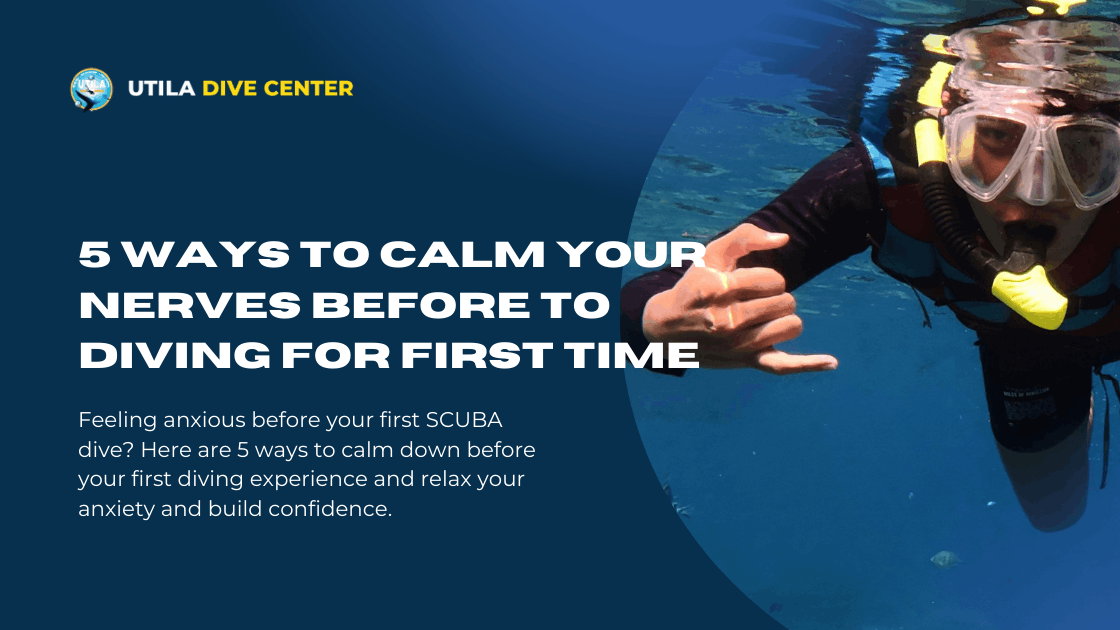
5 Ways to Calm Your Nerves Before to Diving for First Time
Feeling anxious before your first SCUBA dive? Here are 5 ways to calm down before your first diving experience and relax your anxiety and build confidence.
Read more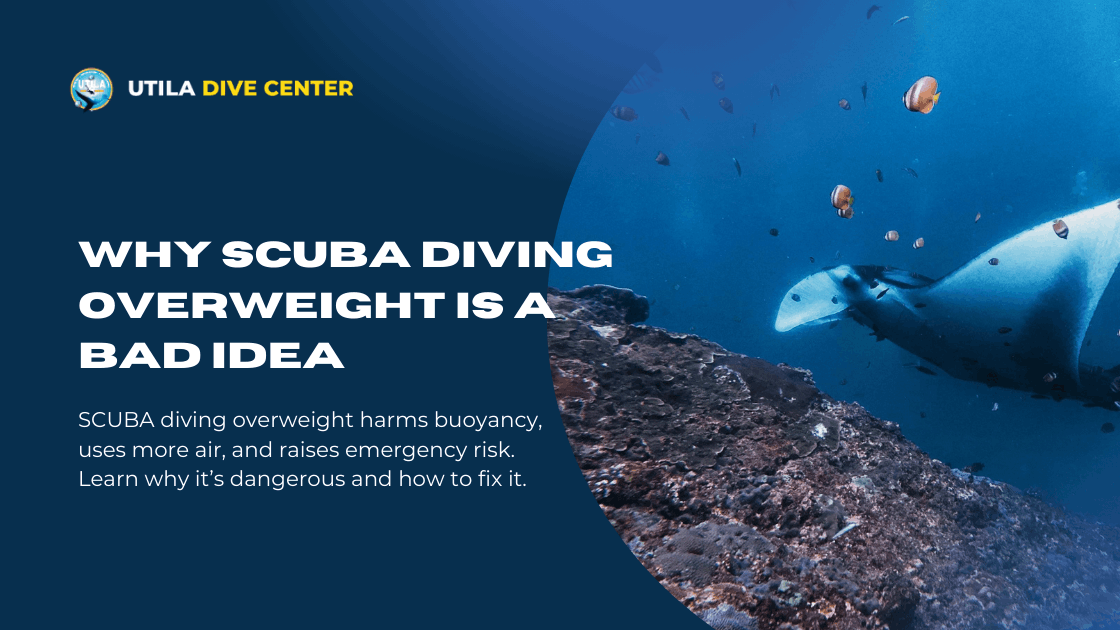
Why SCUBA Diving Overweight Is a Bad Idea
SCUBA diving overweight harms buoyancy, uses more air, and raises emergency risk. Learn why it’s dangerous and how to fix it.
Read more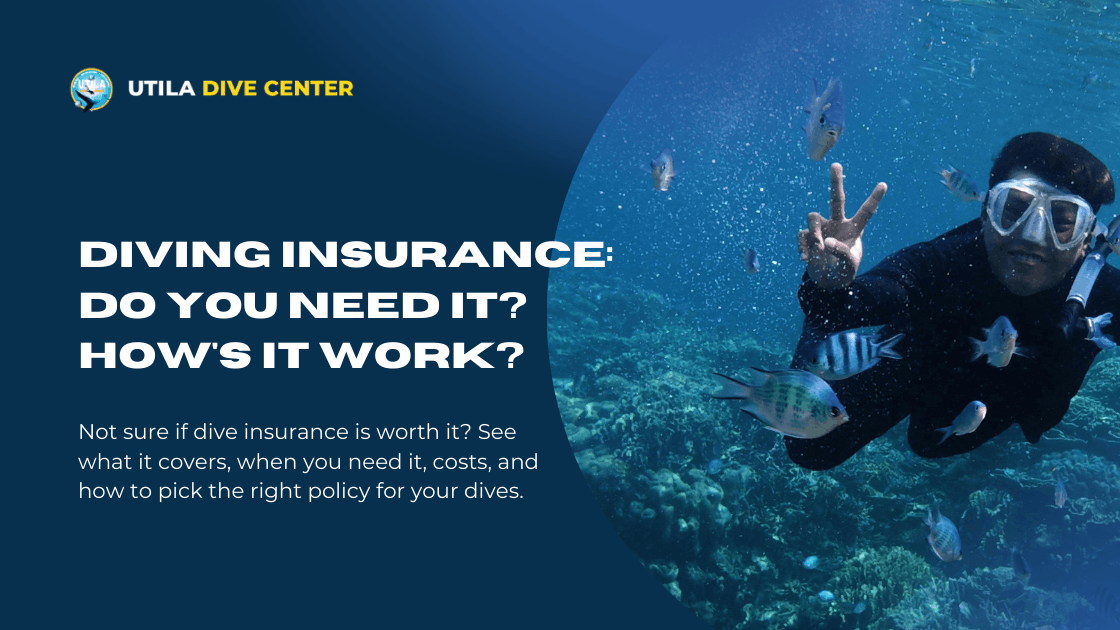
Diving Insurance: Do You Need It? How's It Work?
Not sure if dive insurance is worth it? See what it covers, when you need it, costs, and how to pick the right policy for your dives.
Read more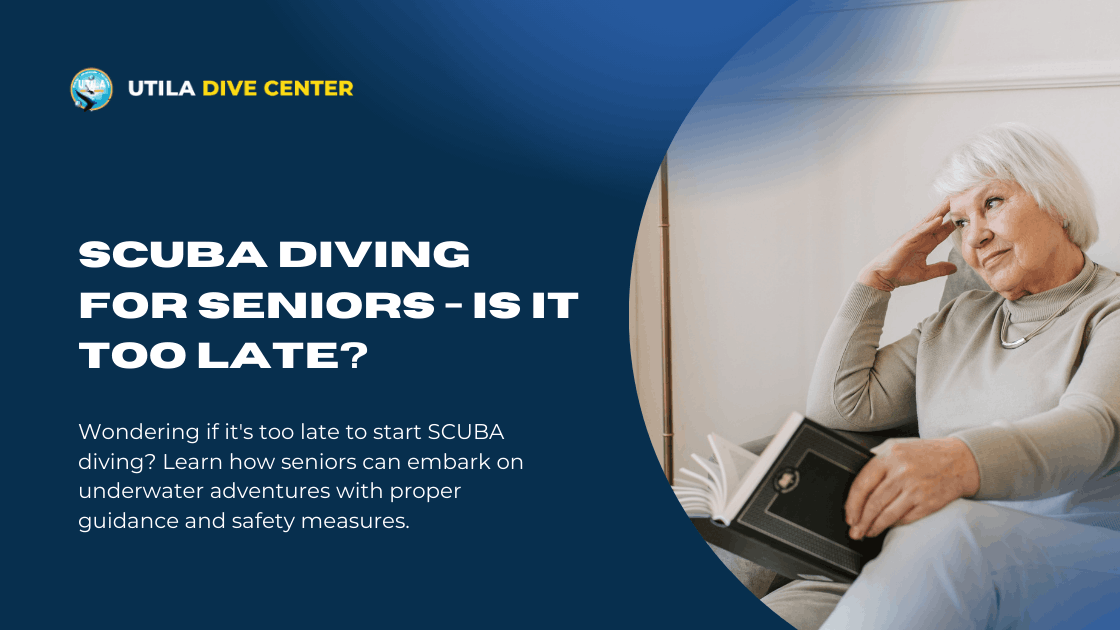
SCUBA Diving for Seniors - Is It Too Late?
Wondering if it's too late to start SCUBA diving? Learn how seniors can embark on underwater adventures with proper guidance and safety measures.
Read more